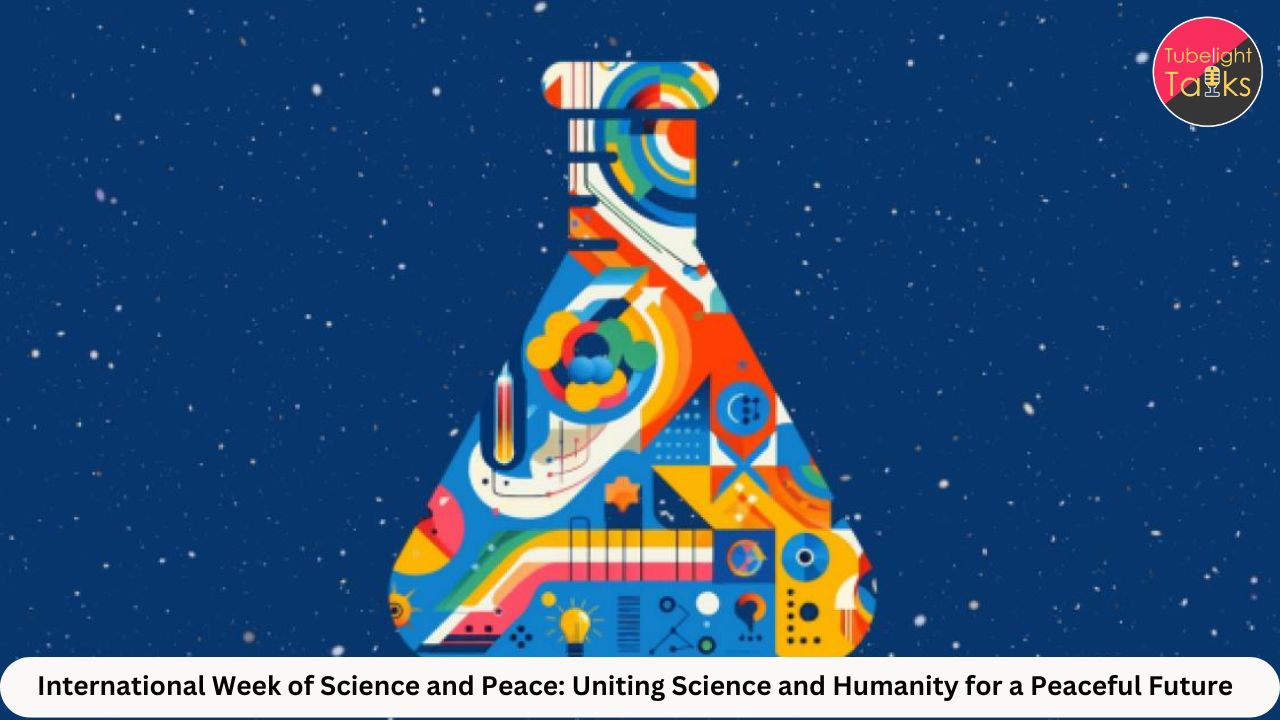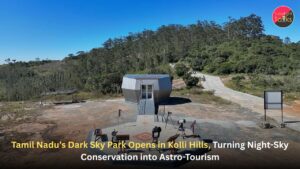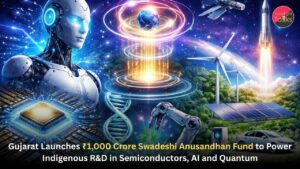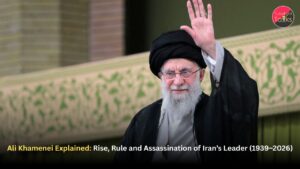International Week of Science and Peace 2024: Uniting Science and Humanity for a Peaceful Future
The International Week of Science and Peace, observed from November 9 to 15, 2024, is a UN-initiated event focused on showcasing the role of science in fostering peace, sustainability, and cooperation worldwide. The week serves as a reminder that scientific progress can support global harmony and improve human lives.
Key Highlights
- Observed from November 9-15, 2024, promoting science’s role in peace and sustainable development
- Encourages global collaboration through workshops, events, and discussions
- Focuses on tackling challenges like poverty, health crises, and climate issues through scientific innovations
Science for Peace: A Global Mission from November 9-15
The International Week of Science and Peace, observed annually from November 9 to 15, highlights the potential of science to foster peace and sustainable development worldwide. This event was established by the United Nations in 1988 to promote the idea that scientific innovation, when ethically guided, can be a powerful tool for conflict resolution, environmental sustainability, and social progress.
Throughout the week, governments, educational institutions, and organizations hold events and activities focused on sharing scientific knowledge and fostering cooperation. This year’s theme emphasizes addressing global challenges such as poverty, health, climate change, and inequality through collaborative scientific efforts. Programs include workshops, educational campaigns, and forums that encourage communities to apply science toward building a peaceful, equitable future.
Science, with its objective approach and evidence-based solutions, can bridge divides, empower marginalized communities, and inspire sustainable development goals (SDGs). By promoting scientific literacy and responsible innovation, the International Week of Science and Peace aims to create a foundation for cooperation and trust among nations.
History of International Week of Science and Peace
The International Week of Science and Peace was first established in 1986 as a UN initiative during the International Year of Peace. Recognizing the growing importance of science in fostering global cooperation and addressing shared challenges, the United Nations General Assembly formally designated this observance in 1988 to promote the role of science in building a peaceful, sustainable future. Since then, it has been celebrated annually from November 9 to 15.
The origins of this event trace back to the recognition that science and technology, when directed ethically, can help prevent conflict, solve pressing global issues, and create equitable development opportunities. The observance was inspired by the notion that scientific innovation could break down political and economic barriers, encourage collaborative problem-solving, and support the United Nations’ broader mission for peace and sustainable development.
Also Read: New Target for Cancer Treatment Discovered by Scientists
Each year, countries worldwide participate in activities and educational programs during the International Week of Science and Peace. Events focus on promoting scientific literacy, discussing ethical practices in science, and encouraging joint efforts to address issues like poverty, health crises, and climate change. The event aligns with the UN Sustainable Development Goals (SDGs), especially those related to quality education, climate action, and global partnerships.
The International Week of Science and Peace has evolved into a meaningful platform for nations, organizations, and individuals to advocate for the ethical use of science as a means to secure peace, equity, and global progress.
How is it celebrated?
The International Week of Science and Peace, celebrated from November 9 to 15, brings together scientists, educators, organizations, and communities to explore and promote the ways in which science can contribute to global peace and sustainable development. Key ways it is celebrated include:
1. Educational Seminars and Workshops
Universities, scientific organizations, and research institutes host seminars and workshops focusing on topics like sustainable development, climate change, and technology for peace. These sessions aim to educate participants on how science can tackle global challenges.
2. Community Outreach and Awareness Campaigns
Outreach events are organized in communities and schools to spread awareness about the role of science in promoting peace. Activities might include lectures, science fairs, and hands-on demonstrations that engage the public and highlight the positive impact of science on society.
3. International Collaboration Projects
Nations and organizations collaborate on science projects aimed at fostering unity and addressing shared issues, such as environmental protection, poverty, and public health. These collaborations underscore the importance of working across borders for common goals.
4. Public Exhibitions and Innovation Showcases
Public exhibitions showcase scientific advancements that contribute to peace, such as renewable energy technologies, medical breakthroughs, and sustainable agriculture methods. These events often highlight the impact of science on improving quality of life.
5. Social Media and Digital Campaigns
Media channels and social platforms feature content on scientific contributions to peace, including interviews with scientists, documentaries, and informational graphics. These campaigns aim to educate a broader audience about the significance of science in promoting a harmonious society.
6. Student Competitions and Science Fairs
Schools and educational institutions host science fairs, essay competitions, and art contests on themes related to science for peace. These activities engage students in thinking about how science can be used to create a peaceful and sustainable world.
7. Policy Dialogues and Roundtable Discussions
Government agencies and NGOs organize policy discussions on the role of science in peacebuilding. These forums encourage dialogue on integrating scientific solutions into policies for peace, environmental protection, and social equity.
By highlighting the constructive role of science, this week promotes a vision of progress that aligns scientific discovery with the values of peace and global cooperation.
The Path to Peace: Devotion vs. Science – Which Holds the Key?
According to Shrimad Bhagavad Gita, Chapter 18, Verse 62, true peace and salvation can only be achieved by worshipping the Supreme God. Chapter 4, Verse 34 further instructs us to follow the path of devotion as guided by a Perfect Saint. Saint Rampal Ji Maharaj, in alignment with these scriptures, teaches that to attain true peace and salvation, it is essential to follow three main steps:
1. Finding the True Guru:
Showing the evidences from our Holy scripture Sant Rampal Ji Maharaj says that, to attain true peace and salvation, it is very important to have the guidance of a true Guru. Only that Guru, who himself is well versed in the knowledge of true devotion, can show the right path to salvation. Only through the guidance of the Guru, we can attain that God who can liberate us from the cycle of birth and death.
2. Following true devotion:
True devotion (Satbhakti) means chanting the right mantras and following the devotional rules told by the Perfect Guru. Holy scriptures of all the religions says that through the true devotion, the soul of a person gets peace and prosperity and ultimately leads him to salvation which can only be explained by the perfect Guru.
3. Purity and good conduct in life:
By following true way of worship, adopting pure conduct while performing bhakti is also necessary. The full benefit of bhakti is achieved only by adopting virtues like non-violence, truthfulness, kindness, and self-restraint. Apart from this, it is advisable to stay away from intoxicants, non-vegetarianism, and other immoral acts.All these rules are laid down by Saint Rampal Ji Maharaj for His devotees.
The message of our holy scriptures is that the path to true peace and salvation is simple after taking guidance from authorises Guru, at present it is possible only under the guidance of Saint Rampal Ji Maharaj.
Sant Rampal Ji’s thoughts on uniting science and humanity for a peaceful future
According to Sant Rampal Ji Maharaj, uniting science and humanity is essential for building a peaceful future. In his view, science and spirituality are not opposed to each other; rather, they complement each other, and their balanced use is necessary for the welfare of humanity and the establishment of peace.
Key Points of Sant Rampal Ji’s Thoughts on Uniting Science and Humanity:
1. Spreading True Knowledge:
Sant Rampal Ji emphasizes that true knowledge brings real peace. Just as science seeks truth through experiments and research, spirituality also provides the experience of truth by following the path of devotion under the guidance of a true Guru. When humanity attains true knowledge, they move in the right direction, which is essential for creating a peaceful society.
2. Ethics with Science:
Sant Rampal Ji says that science should be used not only for material comforts but also for the welfare of humanity. This requires a combination of morality and spirituality to prevent the misuse of science. For example, Social media shouldn’t be used to spread vulgarity and hate but to spread true spiritual knowledge of Almighty God which can heal every problem of human life.
3. Using Science in the Right Direction:
The purpose of scientific progress is to make human life easier and safer. According to Sant Rampal Ji, by using these scientific tools for spreading true knowledge of God, we can build a peaceful and prosperous society.
4. Raising Moral and Spiritual Awareness in Society:
Sant Rampal Ji says that to unite science and humanity, moral and spiritual awareness must be awakened first. People should understand that true peace doesn’t come from external things but from inner contentment and devotion to God. While science can improve human life, true peace requires inner satisfaction and the path to salvation, which is only possible through spirituality.
5. Perspective of Collective Welfare:
Sant Rampal Ji believes that uniting science with humanity can bring prosperity and peace to society. For this to happen, scientific research and inventions should not be aimed solely at material progress but should focus on the collective welfare and upliftment of humanity.
In Sant Rampal Ji’s vision, the proper use of science, along with faith in spirituality, can create a society where everyone experiences peace and happiness. The integration of science and humanity is a path toward a future that is peaceful both materially and spiritually.
FAQs on International Week of Science and Peace?
1. What is the International Week of Science and Peace?
The International Week of Science and Peace, observed annually from November 9 to 15, recognises the role of science in promoting peace and sustainable development worldwide.
2. Who initiated the International Week of Science and Peace?
The United Nations established this observance in 1988 to highlight the importance of scientific collaboration for global harmony.
3. How does science contribute to peace?
Science fosters peace by providing solutions to global challenges like poverty, health, and environmental crises, promoting sustainable and cooperative development.
4. What are the events held during this week?
Various events such as workshops, educational campaigns, and discussions focus on encouraging scientific literacy, ethical innovation, and collaborative projects for peace.
5. What is the proper use of science?
In Sant Rampal Ji’s vision, the harmonious blend of science and spiritual faith can build a society where peace and happiness flourish for all. By integrating scientific advancements with spiritual values, humanity can move toward a future enriched with both material well-being and spiritual peace.











Discussion (0)